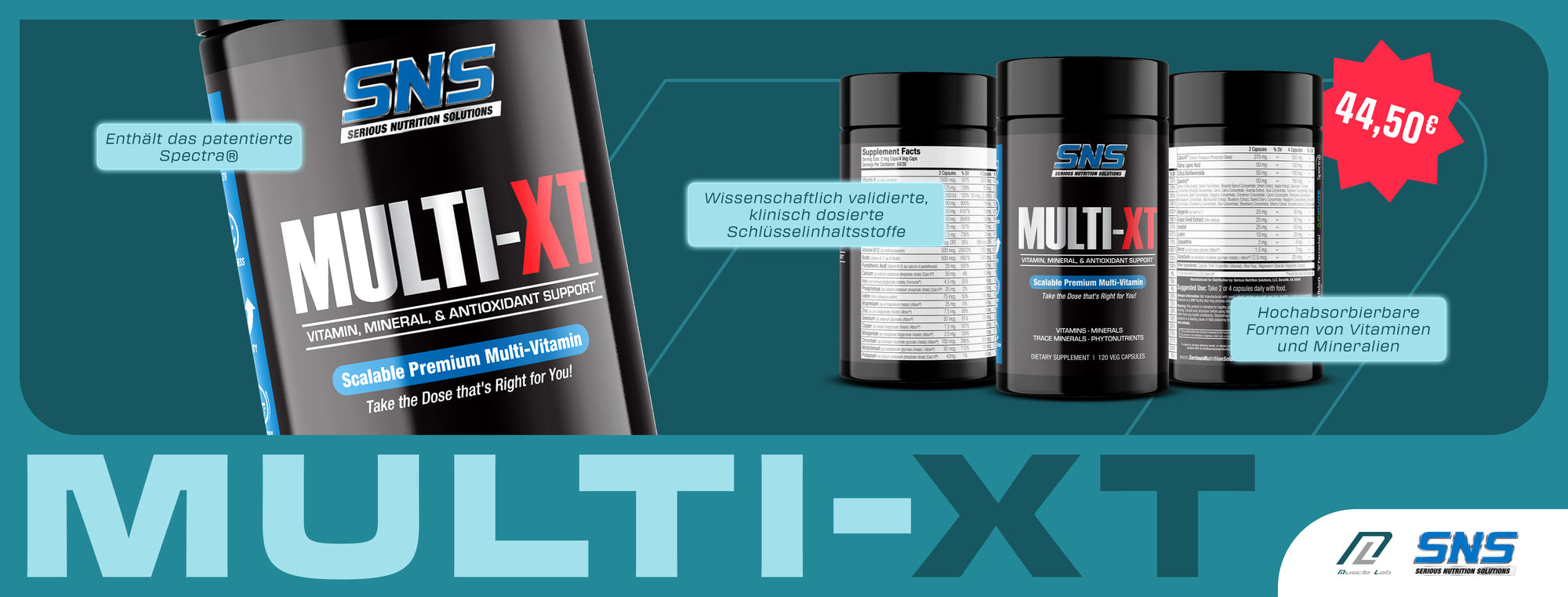What is L Arginine?
L-arginine is a semi-essential amino acid, which means that the body can only produce it in small amounts. Therefore, L-arginine must be ingested through food to be available in sufficient quantities. In the human body, L-arginine is particularly important for the production of nitric oxide. It is partly responsible for increasing muscle mass and serves to regulate vascular tone and improve blood flow. L-arginine is highly regarded, especially in strength training and bodybuilding. Find out here why L-arginine is such an important amino acid for performance and muscle building. One waste product of L-arginine, for example, is L-ornithine.
Effects and areas of application of L Arginine
The amino acid L-arginine is a component of proteins and, due to its diverse functions, exerts a variety of effects. But what can you expect from its effects, and what are the areas of application for L-arginine?
L Arginine is a truly multifunctional ingredient that is good for several different purposes and can be used for the following purposes:
- L Arginine can increase performance (performance enhancement)
- L Arginine helps build muscle as a component of proteins
- L Arginine optimizes blood circulation
- L Arginine is used in cardiovascular diseases
- L Arginine improves the nutrient supply to muscle cells
- L Arginine can lower blood pressure
- L Arginine can increase potency
L Arginine increases performance
L-arginine dilates blood vessels and improves blood flow. However, the body only produces small amounts of L-arginine, which is why taking arginine supplements externally can significantly improve performance. L-arginine supplied from external sources can significantly increase performance. You'll feel a truly intense pump, which makes working with weights easier, allowing for more repetitions and sets. Along with improved blood flow, oxygen supply also improves, which is why L-arginine is also often taken to support endurance.
Which foods contain L-arginine?
Many foods contain L-arginine. We've included a list of them for you:
- Meat (proteins)
- Fish
- Nuts
- Legumes
- Pumpkin seeds (most L arginine of all)
- Seafood such as shrimp or mussels
- pine nuts
- gelatin
- Soy protein
L Arginine for muscle building, immune system and fat burning
Researchers have found that L-arginine can increase athletic performance by up to 20 percent. L-arginine is also said to help release growth hormones, which not only help build muscle but also strengthen the immune system and burn fat. L-arginine also facilitates better nutrient transport, supplying organs and muscles with nutrients and thus enabling a stronger immune system.
L Arginine increases nitric oxide levels
The conversion to nitric oxide is an important component of L-arginine in humans. It also helps regulate blood flow by blocking harmful microorganisms that damage cell communication. Similarly, nitric oxide helps distribute nutrients through muscle tissue, which helps improve athletic performance. In addition to providing the necessary nutrients to build collagen, arginine is an important enzyme for the hormonal system.
What role do arginine supplements play in sports?
As an additional ingredient, L-arginine provides a building block for nitrates and increases vascular function. The deeper the vessel, the more nutrients are pumped into the muscles, thus promoting muscle growth and improving performance during training. Arginine supplements for bodybuilders also contain arginine. These amino acids are widely used; L-arginine is known to be taken to increase pumps, improve blood flow to the muscles, and enhance performance. There are also several studies that have identified a connection between L-arginine intake and HGH release. Since this effect still requires further scientific research, we can say that L-arginine is used as a supplement as a pump booster. The most common form of L-arginine intake is in capsules and powder.
What should the dosage be for athletes and strength athletes?
Recommended doses vary depending on body size and weight. Physiological studies have shown that an intake of 5000-8000 mg of L-arginine before a training session is sufficient. It is recommended to gradually increase the dose as training progresses to determine the appropriate dose based on individual needs.
Which L-arginine supplements should you take?
We offer top-quality L-arginine supplements in a wide variety of products. L-arginine is taken both as a single active ingredient in capsule and powder form, but there are numerous products available, including pump boosters, GDA, cardiovascular support products, endurance supplements, and even protein powder and EAA intra-workout supplements (as a building block of protein).













